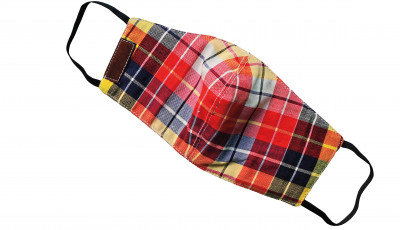What are the symptoms of COVID-19?
The most common symptoms of COVID-19, the disease caused by the new coronavirus, are fever, cough and shortness of breath. But as experts have learned more about the new virus, it has become clear that some people may have other symptoms, including chills, muscle pain, sore throat, gastrointestinal problems or loss of the sense of smell or taste.
Many jurisdictions now offer coronavirus testing for people with COVID-19 symptoms. Mild illness can often be managed at home by drinking plenty of fluids and taking over-the-counter medications for fever, cough and pain.
If symptoms worsen or don’t improve over time, contact a health care provider for advice. If a person has trouble breathing, bluish lips or face (a sign of a lack of oxygen), persistent pain or pressure in the chest or new mental confusion, seek emergency medical attention immediately.

Istock
Should I wear a face mask?
The Centers for Disease Control and Prevention recommends that everyone wear cloth face masks when in contact with the public to reduce transmission of the new coronavirus. Some states and many businesses now require mask use.
As long as they are in short supply, N95 and medical masks should be reserved for frontline workers. Cloth masks do not filter out viruses, but they do block virus-containing droplets expelled when people cough, sneeze or talk. Studies have shown that masks reduce the release of respiratory viruses by the wearer.
Homemade masks made from a double layer of heavy-duty cotton appear to work well. But even a bandanna or cut-up T-shirt can reduce the spread of virus-containing droplets. Make sure your mask fits snugly and completely covers your mouth and nose.

Istock
Can I stock up on meds?
During the COVID-19 crisis, many experts recommend keeping at least a 30-day supply of your essential medications—and up to a three-month supply if possible—in case of supply disruptions or in case you are confined to your home. So far, the Food and Drug Administration has not reported major shortages.
Stocking up can be difficult due to drug costs and insurance restrictions—for example, policies that let you fill a prescription for only one month at a time. However, many insurers have modified their policies in the wake of the crisis. Some will allow people to buy medication for a longer period, often three months, and encourage filling prescriptions by mail.
In addition, some states are raising Medicaid eligibility thresholds, providing extended unemployment benefits and taking other steps to ease the financial burden at a time when many people are out of work.
Experts also recommend making a list of all the medications you take, including both brand and generic names and dosages, so you have this information to give to care providers besides your usual doctor, if necessary
Go to poz.com/ask to read more answers, and email ask@poz.com to submit your questions!







Comments
Comments